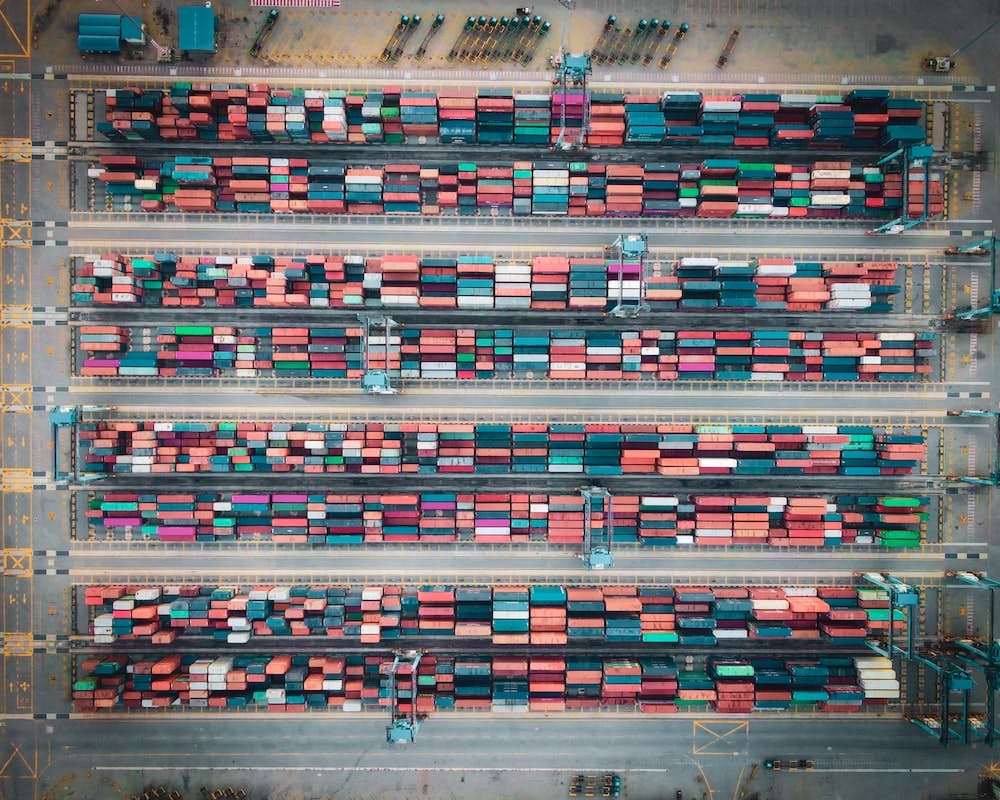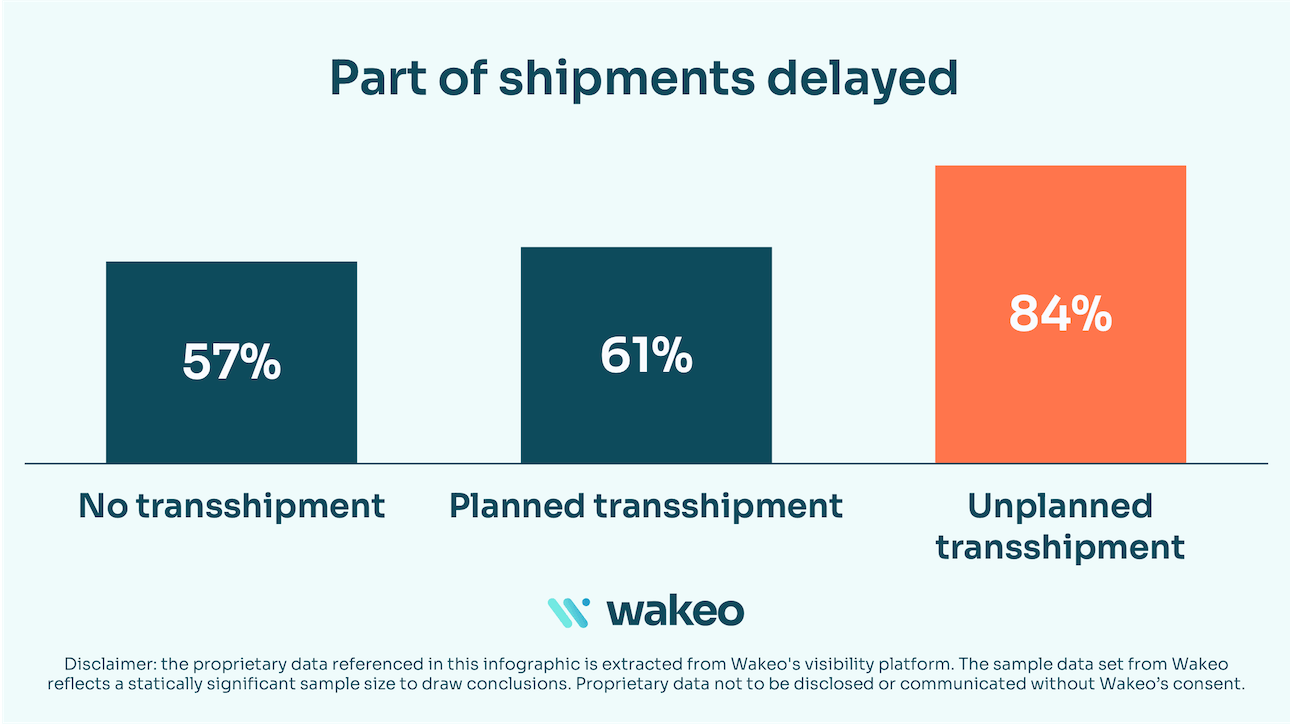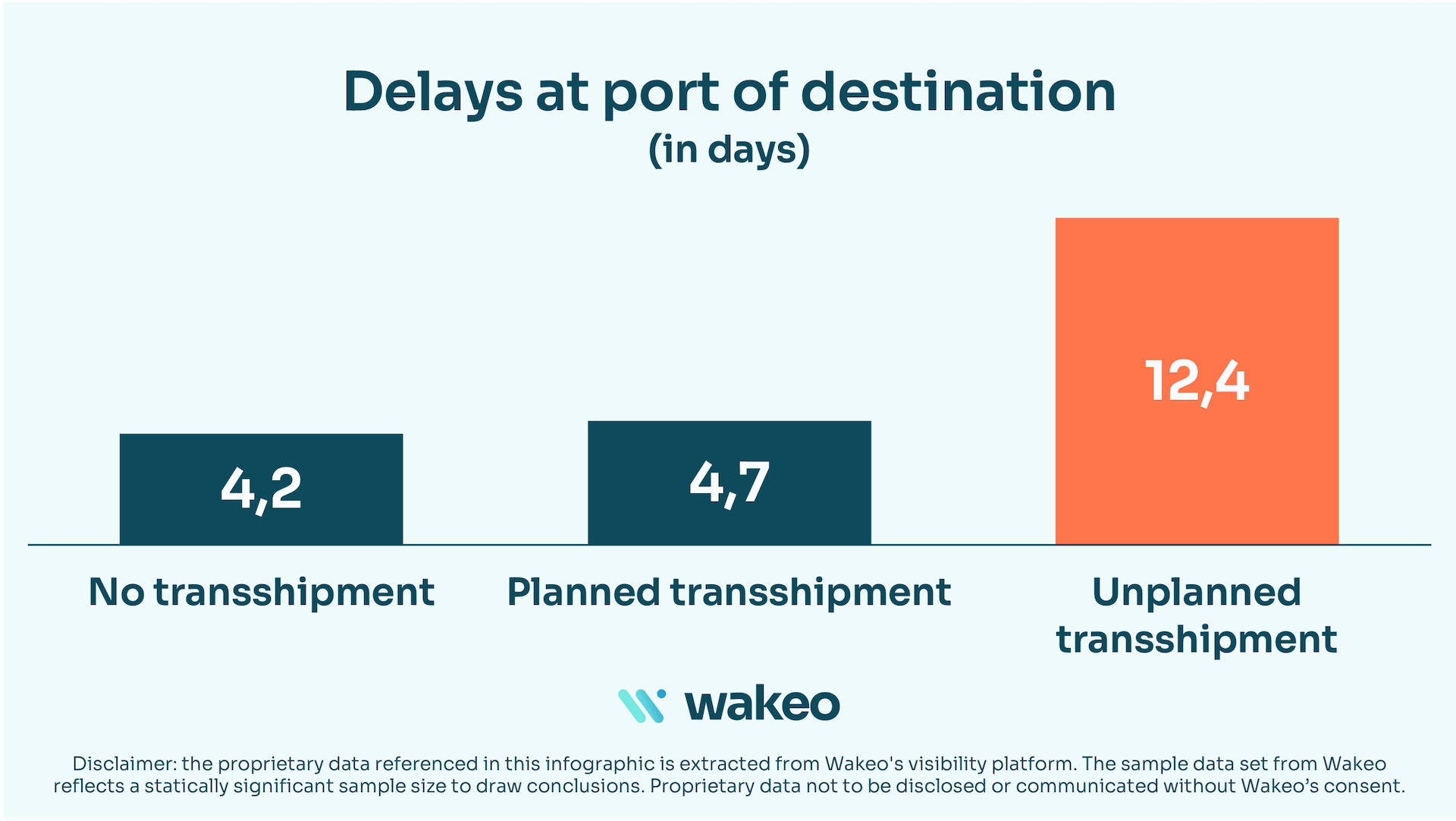Webinar replay | Global Supply Chain Architecture: Examining Red Sea’s Evolving Impact - Watch Now

Unplanned transshipments
Never heard about unplanned transshipments? Yet, it affected up to 1 out of 7 shipments in 2022. You might be interested to know about our findings.
What you need to know about transshipment
Transshipment, which involves transferring goods from one vessel to another, can be scheduled or may occur unexpectedly. If this transshipment was not communicated by the shipping lines at the time of booking, it is an unplanned transshipment.
Unplanned port omissions caused by congestion, bad weather, unexpected events, etc. at the port of discharge are often the reason why shipping lines have to unload the containers at another port, which was not part of the initial route. Then, containers are unloaded for re-marshaling and left at the terminal, resulting in delays as they wait for the next vessel. In the case of containers transporting dangerous materials, those unplanned transshipments can be even more challenging as not all ports are equipped to deal with those labeled containers.
Why unplanned transshipments can be an issue?
While it was usually seamless for the company to plan the loading on the next vessel, since the covid-19 pandemic, this procedure has been disrupted, leading to an unprecedented level of delays. But even in normal circumstances, the next vessel cargo stop on the same shipping line at the port of loading can be up to 7 to 15 days later.
In some rare cases, containers may also even be reloaded onto the wrong vessel and unexpectedly arrive at a different port from the original destination.
In the case of perishing and seasonal goods or for products under inventory pressure, those delays can have a tremendous effect on costs, sales, and customer satisfaction.
What are the consequences of unplanned transshipment?
An analysis extracted from Wakeo's data analytics on a significant sample of shipments in 2022 showed that 84% of shipments affected by unplanned transshipment were late, compared to 58 to 61% in case of no or planned transshipment.

This analysis also emphasized the fact that an unplanned transshipment can lead to an additional delay at the port of destination of 7,7 to 8,1 days (in comparison to a shipment without transshipment or with planned transshipment).
